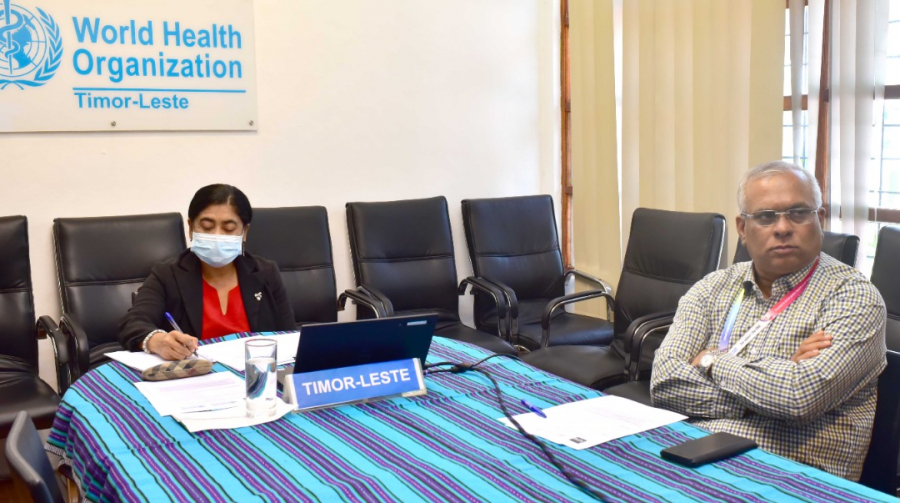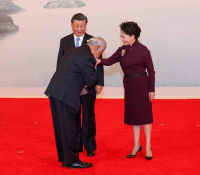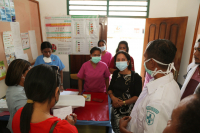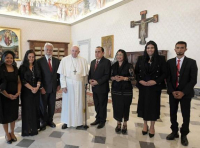‘For every dollar invested in universal health coverage, the return is delivered many times over – first, due to increases in overall population health and well-being and the productivity, jobs and poverty-reduction they promote; and second, because when the quality and reach of health services improves, health systems become more resilient and can better mitigate or manage acute threats while maintaining essential health services’ said WHO South-East Asia Regional Director, Dr Poonam Khetrapal Singh.
Health and Finance Ministers from the Asia Pacific Region met at a virtual meeting organized by WHO, the Government of Japan and the Asian Development Bank to discuss ways and means to accelerate universal health coverage (UHC) or health for all and mobilize financing for healthcare amidst and beyond the COVID-19 pandemic.
The WHO South-East Asia Region which was represented by health and finance ministers from several Member countries, has been focusing on UHC as one of its flagship initiatives. The Region has adopted two key ministerial declarations on building resilient health systems, the 2019 Delhi Declaration on Preparedness and last week the Region’s Declaration on Collective Response to COVID-19. Both these declarations commit to investing in preparedness and Regional solidarity to make health systems stronger amongst the 11 Member countries.
“Across the WHO South-East Asia Region, across Asia and across the world, countries that have made sustained, long-term investments in UHC have health systems that are more resilient, and which have more effectively minimized the spread of COVID-19, maintained essential health services, and mitigated economic shock,” the Regional Director said.
Since the start of the pandemic almost nine months ago, countries in the Region have demonstrated how strong health systems can effectively respond to global health emergencies. Bhutan, the Republic of Korea and Malaysia have provided free testing for COVID-19 and care, which resulted in timely diagnosis and treatment. Bhutan, strongly committed to UHC, has one of the world’s highest testing rates and as of September 17, is yet to report a COVID-19 death. Countries in the Region with a strong primary health care infrastructure and human resources have been able to repurpose health workers and respond to the pandemic as well as ensuring continuity of essential health services. Sri Lanka with one of the highest numbers of health workers in Asia has reported only 13 deaths due to Covid to date.
“Countries that are committed to UHC have logistics and supply chains that are more secure, efficient and transparent, and can rapidly meet surge needs, for example by increasing testing capacity, procuring personal protective equipment, or maintaining access to essential medicines and medical products. They are also better able to rapidly roll-out key innovations. Crucially, countries that are committed to UHC have successfully mobilized the whole-of-government, whole-of-society buy-in required to effectively respond to the pandemic,” Dr Khetrapal Singh said. Thailand, with a strong investment in public health over the years has managed to keep COVID-19 transmission rates low.
She made a strong plea for prioritising health in government budgets for the short and medium term, for improving investment in primary health care and a better targeting of resources for the poor and the vulnerable, and mobilising domestic revenues for health via pro-health taxes e.g. on tobacco, alcohol, sugar sweetened beverages.
















